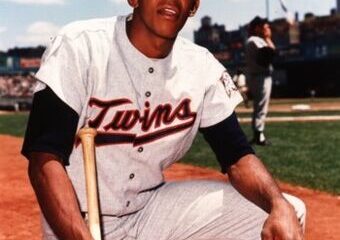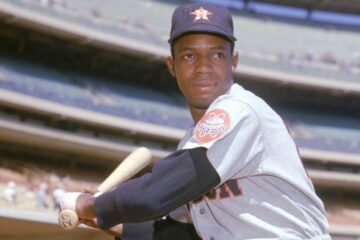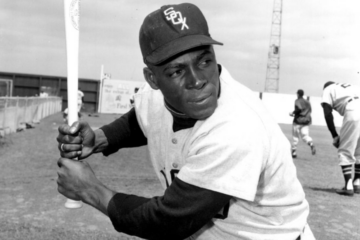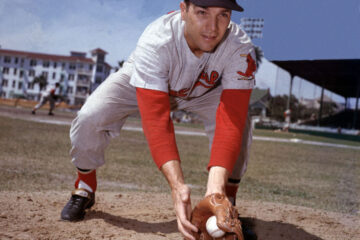The Hall of Fame Index: The Adventures of Sweet Lou Whitaker
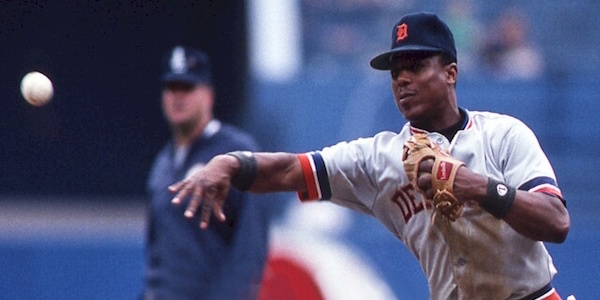
In continuing with the theme of the last several articles. The Hall of Fame Index demonstrates a few things clearly, but none more prominently than the fact that those that vote for the Hall of Fame don’t necessarily know a Hall of Famer when they see one. The whole notion of picking someone without numbers is ludicrous on its face. Everyone has numbers they look at. The key is which numbers we choose to look at.
Last time, we looked at the peculiar case of Bobby Grich. We can easily transport many of those same arguments to Lou Whitaker. Perhaps the Tigers didn’t win enough (outside of 1984). Perhaps he didn’t wind up on Sportscenter enough. Maybe he needs a nickname. From here on out we will refer to him as Sweet Lou Whitaker. I have no way of knowing whether that would describe his personality, but it rolls off the tongue and makes him more colorful. Before we dive into the index and other fancy numbers, let’s take a look at the basic statistics and compare him to the bottom members of the BBWAA group.
| AVG | Hits | HR | Runs | RBI | SB | |
| Roberto Alomar | .300 | 2724 | 210 | 1508 | 1134 | 474 |
| Craig Biggio | .281 | 3060 | 291 | 1844 | 1175 | 414 |
| Ryne Sandberg | .285 | 2386 | 282 | 1318 | 1061 | 344 |
| Lou Whitaker | .276 | 2369 | 244 | 1386 | 1084 | 143 |
Of course those three Hall of Famers are better than Whitaker. They had higher batting averages than he did. They had more hits than he did. They all hit more home runs except for Alomar. They all drove in more runs except for Sandberg. Heck, they ran circles around on him on the basepaths. So, what’s the issue here right?
Well, the issue is that not all of these numbers contribute as much to winning as others. Steals are nice, but they aren’t as valuable as getting on base. Nothing above even gets at how successful each of these players were at doing that. Home runs hint at the power, but we don’t see doubles and triples either. Perhaps even more importantly, how good were all of these players at fielding?
Again, we will wait on the index and go to those other numbers to see how good he really was in comparison. So, we are looking at on base percentage, walks, total bases. Finally, we will see a part of wins above replacement in the form of defensive wins above replacement according to baseball-reference.
| OBP | BB | SLG | TB | dWAR | |
| Roberto Alomar | .371 | 1032 | .443 | 4018 | 2.4 |
| Craig Biggio | .363 | 1160 | .433 | 4711 | -3.9 |
| Ryne Sandberg | .344 | 761 | .452 | 3787 | 12.8 |
| Lou Whitaker | .363 | 1197 | .426 | 3651 | 15.4 |
Notice how we get a different picture here. Is Whitaker definitely better than the other three? I think that would be stretching things a bit too far. The others best him in different categories, but he definitely holds his own. So, at the end of the day it really isn’t about looking at numbers or not looking at numbers. I guarantee you that the BBWAA looked at numbers when they decided Whitaker wasn’t quite good enough. They just looked at the wrong ones.
Career Value
| bWAR | fWAR | WARP | Total | |
| Lou Whitaker | 74.9 | 68.1 | 56.2 | 199.2 |
| Craig Biggio | 68.1 | 65.8 | 60.2 | 191.1 |
| Roberto Alomar | 66.8 | 63.6 | 59.8 | 190.2 |
| Ryne Sandberg | 67.5 | 60.9 | 59.1 | 187.5 |
The cold and hard reality is that these numbers don’t prove that anyone is better than anyone else. Look closely and you will see that each platform has the rankings a little different. So, at the end of the day you are essentially trying to prove that Beck’s is superior to Guiness. It’s all a matter of taste and each player offers unique skills to the discussion. These numbers do stipulate that Whitaker is far better than people gave him credit for and he belongs in the conversation with each of these players.
Of course, we need to include peak value into the conversation before we go too far. All three of the Hall of Famers were either winners of the award or top five finishers. Whitaker rarely enjoyed that kind of notoriety. So, was this a case of him being good for a long time and never great, or was he misunderstood?
| bWAR | Rank | MVP | |
| 1982 | 5.4 | N/A | N/A |
| 1983 | 6.7 | 5 | 8 |
| 1984 | 4.3 | N/A | N/A |
| 1985 | 4.5 | N/A | N/A |
| 1986 | 4.4 | N/A | N/A |
| 1987 | 3.6 | N/A | N/A |
| 1988 | 3.5 | N/A | N/A |
| 1989 | 5.3 | 8 | N/A |
| 1990 | 3.8 | N/A | N/A |
| 1991 | 6.7 | 4 | N/A |
Keep in mind the rankings for bWAR are major league rankings. So, we could comfortably say that Whitaker should have had three maybe four top five finishes in the voting. That being said, the general consensus is that Whitaker was always really good, but he was never truly great. That being said, there is something to be said for the consistency you see above.
Peak Value
| bWAR | fWAR | WARP | Total | |
| Ryne Sandberg | 56.2 | 51.6 | 51.0 | 158.8 |
| Craig Biggio | 53.0 | 51.3 | 45.8 | 150.1 |
| Roberto Alomar | 53.5 | 47.6 | 46.8 | 147.9 |
| Lou Whitaker | 48.3 | 45.9 | 44.3 | 138.5 |
A number of voters probably stop at the career value part. We could have done the same and that would have strengthened Whitaker’s argument, but that would be intellectually dishonest. He should have gotten more love in the MVP voting, but he still was not as good at his best as the others were at their best. Yet, the difference is not as much as we might think. Over a ten year period, twenty wins over the course of three platforms translates to between 0.6 and 0.7 wins per season separation from Sandberg. It ends up being half when comparing him to Alomar.
Not every vote against Whitaker was uninformed. We are talking the difference in rationales and if someone voted against him because he was never a truly great player then that makes some level of sense. Naturally, that opens up the BBWAA to criticism on other players who were good for a long time, but never great.
The Hall of Fame Index
| Career | Peak | Total | |
| Ryne Sandberg | 187.5 | 158.8 | 346.3 |
| Craig Biggio | 191.1 | 150.1 | 341.2 |
| Roberto Alomar | 190.2 | 147.9 | 338.1 |
| Lou Whitaker | 199.2 | 138.5 | 337.7 |
This isn’t about rankings. Anyone that ranks these four players in order based on these numbers or any other numbers is a fool. The point is that Whitaker is in the neighborhood. I don’t have enough confidence in the fidelity of these numbers to say “yay” on Alomar and “nay” on Whitaker. I am comfortable saying that if one goes in then they both go in. What is plain is that all three of the Hall of Famers had something going for them that Whitaker did not. Sandberg played on national television at a time when he had a captive audience nationwide. Alomar appeared on Sportscenter throughout his career making seemingly spectacular play after spectacular play. Biggio had those 3000+ hits and seemingly 1000 doubles. Whitaker didn’t even have a nickname. Your time has come Sweet Lou Whitaker. It has come.


